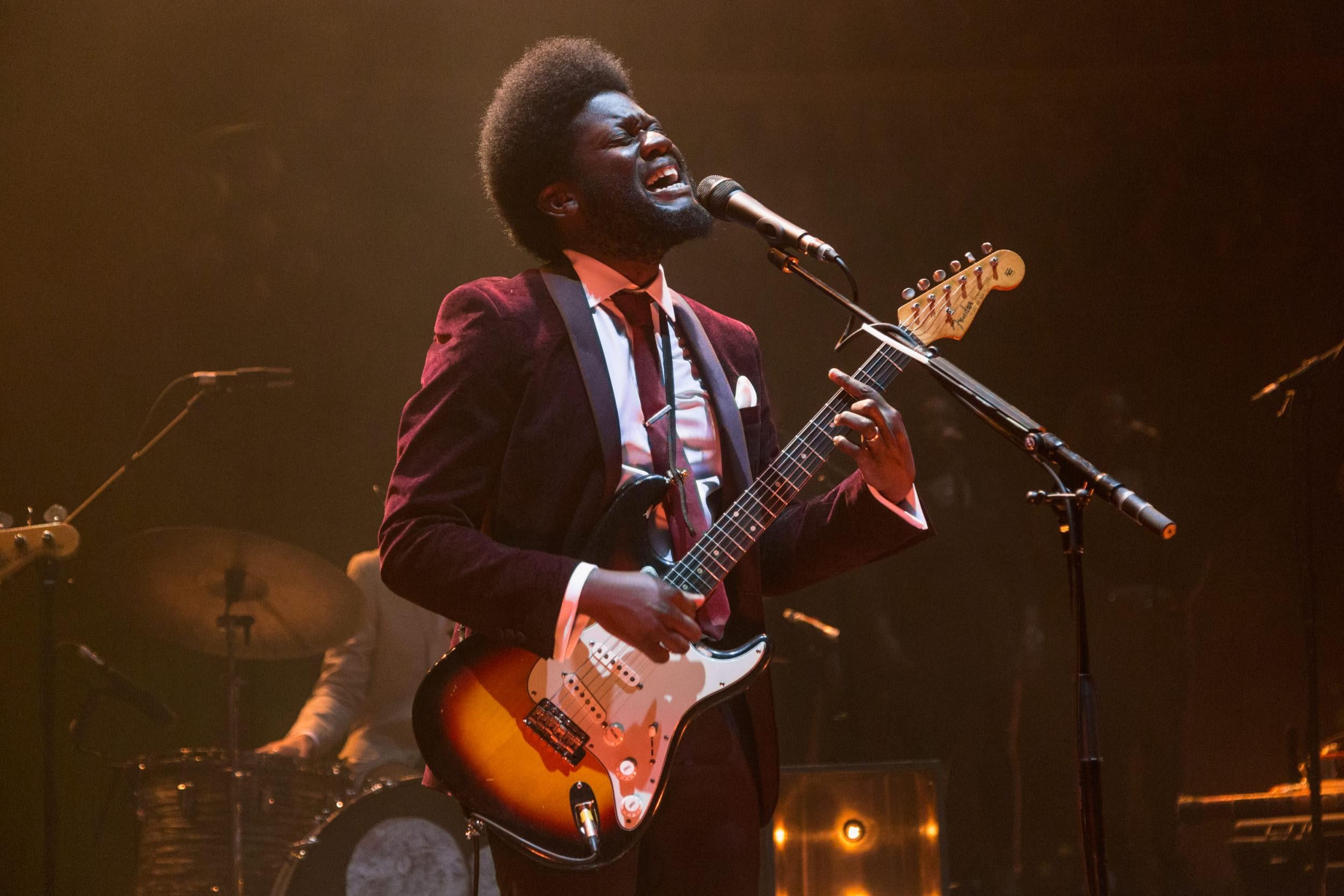Michael Kiwanuka, Royal Albert Hall: A landmark performance from an extraordinary talent coming of age
A show that hints at the artist’s most remarkable instrument – his voice – could help elevate him to rare heights

Your support helps us to tell the story
From reproductive rights to climate change to Big Tech, The Independent is on the ground when the story is developing. Whether it's investigating the financials of Elon Musk's pro-Trump PAC or producing our latest documentary, 'The A Word', which shines a light on the American women fighting for reproductive rights, we know how important it is to parse out the facts from the messaging.
At such a critical moment in US history, we need reporters on the ground. Your donation allows us to keep sending journalists to speak to both sides of the story.
The Independent is trusted by Americans across the entire political spectrum. And unlike many other quality news outlets, we choose not to lock Americans out of our reporting and analysis with paywalls. We believe quality journalism should be available to everyone, paid for by those who can afford it.
Your support makes all the difference.As I can only imagine must be true for anyone else raised with a healthy reverence for the unparalleled Otis Redding, hearing Michael Kiwanuka’s voice for the first time was an emotional experience.
The world has never been short of brilliant voices, but so rarely does one emerge that so authentically evokes the intangible essence of what made the likes of Redding so special.
Five years since he was thrust into the mainstream with his acclaimed debut album, Kiwanuka – born just a few miles up the road in Muswell Hill – stepped on to the stage at the Royal Albert Hall.
Coming just a few days after he celebrated his 30th birthday, it was difficult to escape the feeling this was a landmark night for the artist, a feeling not lessened by his occasional, endearingly modest references to the fact he was even performing in the iconic venue.
“This is pretty cool,” he reflected at one point, with an almost wide-eyed earnestness incongruous in someone so obviously and exceptionally gifted.
Having opened in measured and understated fashion with the sweeping “Cold Little Heart”, the urgent rhythms of “Black Man in a White World” initiated a distinct step change for the show, just as the Love & Hate album from which it was taken signalled a new and more sophisticated phase in the artist’s career.
While showcasing the collective abilities of his backing band, the 10-minute, funk-infused rendition of the track demanded and secured the undivided attentions of the entire audience, an arrangement that would not end before the show had.
Kiwanuka’s increasingly impressive songwriting – not to mention his strengths as a more-than-capable guitarist – was in evidence throughout, with the band’s string section coming into its own on “Rest”.
But the point at which the night seemed to transcend what was already a compelling show, was the moment the most remarkable instrument in his possession took over: his voice.
Enjoy unlimited access to 100 million ad-free songs and podcasts with Amazon Music
Sign up now for a 4 month free trial (3 months for non-Prime members)
Enjoy unlimited access to 100 million ad-free songs and podcasts with Amazon Music
Sign up now for a 4 month free trial (3 months for non-Prime members)
Spine-tingling is a hackneyed and often inappropriately deployed adjective, but no other term as accurately describes the performance of “Father’s Child”. Half way through the track, all percussion and guitars melt away, allowing Kiwanuka’s powerfully anguished, affecting vocals to dominate.
The celestial atmosphere established here was sustained for the remaining portion of the evening, the obligatory encore rendition of “Home Again” before the rousing and anthemic “Love & Hate” concluded the show.
Of course, Kiwanuka’s sound is no way a direct throwback to the classic R&B of 1960s Stax or Motown. Of the various great soul singers from whom he draws inspiration, Kiwanuka’s vocal characteristics – not to mention his folk-soul sound, are perhaps most reminiscent of Bill Withers.
While Withers cut a far less animated figure on stage than Redding – whose live performances were imbued with a unique and unrelenting energy – both seemed to benefit from that unmistakable self-assurance and conviction presumably borne of a deep-seated understanding they had been blessed with one of history’s truly special soul voices.
One can only marvel at the prospect of the peaks Michael Kiwanuka might scale when he develops a similarly ingrained appreciation of his own extraordinary gift.
Join our commenting forum
Join thought-provoking conversations, follow other Independent readers and see their replies
Comments